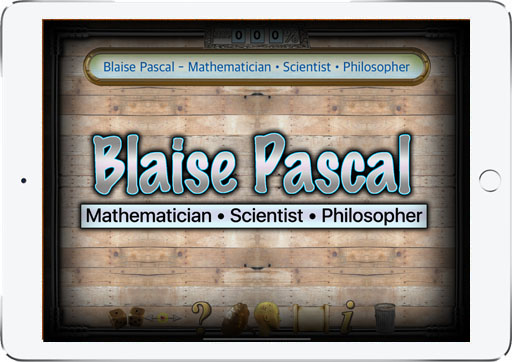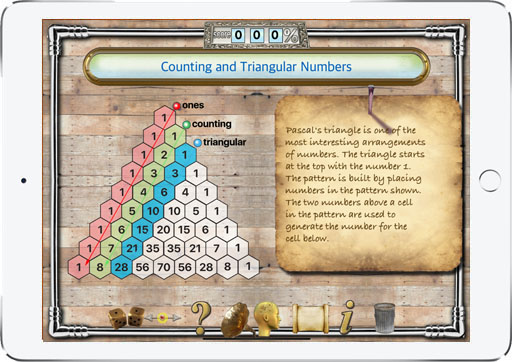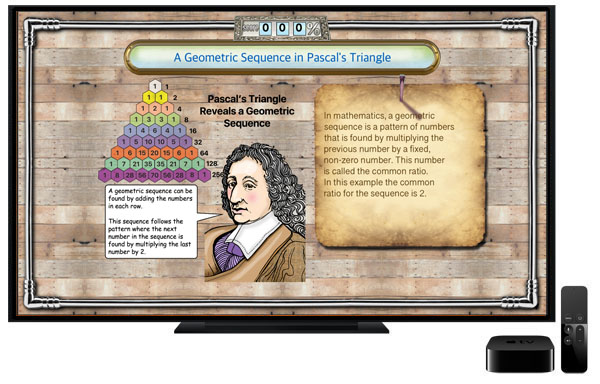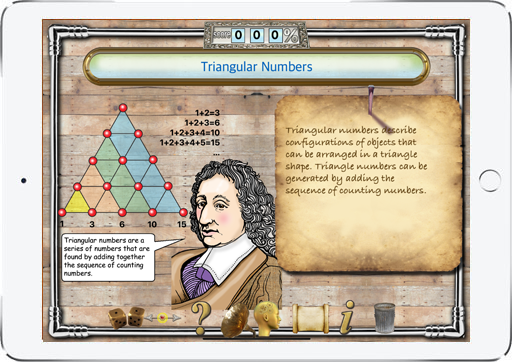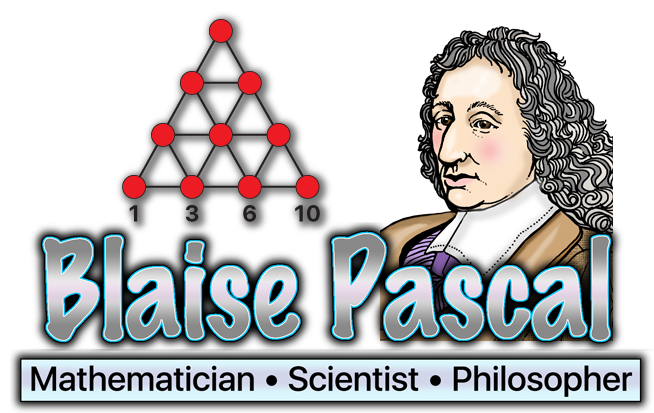
Check out our new Augmented Reality Apps! Check out our Giants in Math and Science Series: Ada Lovelace • The First Coder |
With this app students learn about the life and contributions to mathematics and philosophy made by Blaise Pascal. It discusses Pascal's Triangle, an arrangement of numbers that reveals several important patterns. Pascal was also and inventor. He is credited with the design and development of one of the world's first calculating machines. The Pascaline could perform four arithmetic operations: addition, subtraction, multiplication and division. With this app students learn about the significant contributions that Pascal made to further the development of advanced mathematics. By collaborating with Pierre de Fermat, Pascal laid the groundwork for modern probability theory. In addition to his contributions in mathematics, Blaise Pascal made several important scientific discoveries related to hydraulics. Pascal studied atmospheric pressure. His research showed that vacuums can be created artificially. In his honor, today we use a unit of measurement known as the pascal. A pascal is a unit of pressure that is equal to one newton per square meter. Students will enjoy using this graphically illustrated, interactive learning tool. The timeline feature presents key events in the history of mathematics and tapping on timeline points brings up descriptions of each of the historical event and tells about its significance. A quiz function helps students demonstrate their comprehension of the reading material. Key mathematical and scientific concepts are shown in colorful illustrations. We hope this app will inspire students to study math and science. The app shows that Blaise Pascal certainly deserves an important place in the history of math and science.
|
Special features make using Blaise Pascal - Mathematician • Scientist • Philosopher fun: 1. Tap buttons to learn about the major events in his life. 2. interesting facts are presented using colorful charts. 3. Tap the quiz or game buttons to practice what you've learned. 4. Read about some of the significant events in the history of mathematics and the important contributions that Blaise Pascal made during his lifetime. 5. Sound effects make the interaction even more fun. 6. Available for iPad and Apple TV devices. |
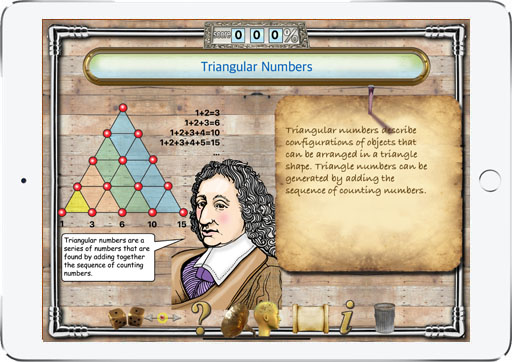 |
Available now for Apple TV Bring the excitement of exploring the mathematical ideas and contributions of Blaise Pascal to your classroom or living room with the Apple TV version of the Blaise Pascal - Mathematician • Scientist • Philosopher.
|
|
$1.99 |
